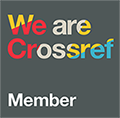Drama-Integrated Interactive Read-Alouds: Perspectives from Preschool Teachers on a Professional Development Program
DOI:
https://doi.org/10.33308/26674874.2025393893Keywords:
Read-aloud, Interactive Read-aloud, Preschool Teacher, Early Childhood Education, Professional Development, CoachingAbstract
Read-alouds are an important learning context for preschoolers; however, teachers need support to implement read-aloud strategies effectively. This qualitative study aims to explore preschool teachers’ experiences with their involvement in a drama-integrated interactive read-aloud intervention. Two preschool teachers participated in a professional development program that combined workshops and ongoing coaching to facilitate the implementation of drama-integrated read-aloud strategies in preschool classrooms. The teachers were interviewed individually after conducting 24 drama-integrated read-aloud sessions in their classrooms. Thematic analysis was used to identify common themes in the data, revealing three main themes: (1) Effective Read-Aloud Strategies, (2) Read-Aloud as a Tool for Development, and (3) Challenges in Implementing Read-Alouds. The results underscore the importance of providing professional development support to help teachers enhance their read-aloud practices effectively.
Downloads
References
Adomat, D.S. (2012). Drama’s potential for deepening young children’s understandings of stories. Early Childhood Education Journal, 40, 343–350. DOI: https://doi.org/10.1007/s10643-012-0519-8
Alatalo, T., & Westlund, B. (2021). Preschool teachers' perceptions about read-alouds as a means to support children's early literacy and language development. Journal of Early Childhood Literacy, 21(3), 413-435. DOI: https://doi.org/10.1177/1468798419852136
Artman-Meeker, K., Fettig, A., Barton, E. E., Penney, A., & Zeng, S. (2015). Applying an evidence-based framework to the early childhood coaching literature. Topics in Early Childhood Special Education, 35(3), 183-196. DOI: https://doi.org/10.1177/0271121415595550
Baker, D. L., Santoro, L., Biancarosa, G., Baker, S. K., Fien, H., & Otterstedt, J. (2020). Effects of a read aloud intervention on first grade student vocabulary, listening comprehension, and language proficiency. Reading and Writing, 33, 2697-2724. DOI: https://doi.org/10.1007/s11145-020-10060-2
Barrentine, S. J. (1996). Engaging with reading through interactive read-alouds. The Reading Teacher, 50(1), 36-43.
Batini, F., D’Autilia, B., Pera, E., Lucchetti, L., & Toti, G. (2020). Reading aloud and first language development: A systematic review. Journal of Education and Training Studies, 8(12), 49-68. DOI: https://doi.org/10.11114/jets.v8i12.5047
Bergman Deitcher, D., Aram, D., Khalaily-Shahadi, M., & Dwairy, M. (2021). Promoting preschoolers' mental-emotional conceptualization and social understanding: A shared book-reading study. Early Education and Development, 32(4), 501-515. DOI: https://doi.org/10.1080/10409289.2020.1772662
Britt, S., Wilkins, J., Davis, J., & Bowlin, A. (2016). The benefits of interactive read-alouds to address social-emotional learning in classrooms for young children. Journal of Character Education, 12(2), 43-57.
Damber, U. (2015). Read-alouds in preschool–A matter of discipline? Journal of Early Childhood Literacy, 15(2), 256-280. DOI: https://doi.org/10.1177/1468798414522823
Davis, A. (2022). Making the most of preservice read alouds. Association of Teacher Educators Conference Proceedings.
Dennis, L. R., Weatherly, J., Robbins, A., & Wade, T. (2021). Practice-based coaching to support paraeducator implementation of shared book-reading strategies in preschool. Teaching Exceptional Children, 53(6), 433-440. DOI: https://doi.org/10.1177/0040059920976675
Dennis, L., Eldridge, J., Wade, T., Robbins, A., Larkin, M., & Fundelius, E. (2024). The effects of practice-based coaching and scripted supports on teachers’ implementation of shared book reading strategies. Child Language Teaching and Therapy, 40(1), 77-95. DOI: https://doi.org/10.1177/02656590241228429
DiGennaro, F. D., Martens, B. K., & Kleinmann, A. E. (2007). A comparison of performance feedback procedures on teachers' treatment implementation integrity and students’ inappropriate behavior in special education classrooms. Journal of Applied Behavior Analysis, 40(3), 447-461. DOI: https://doi.org/10.1901/jaba.2007.40-447
Erdoğan, H. (2020). Teachers’ opinions about the application of interactive reading model in kindergarten [Unpublished Master’s thesis]. Necmettin Erbakan University.
Fisher, D., Flood, J., Lapp, D., & Frey, N. (2004). Interactive read‐alouds: Is there a common set of implementation practices? The Reading Teacher, 58(1), 8-17. DOI: https://doi.org/10.1598/RT.58.1.1
Gosen, M. N., Berenst, J., & de Glopper, K. (2015). Problem-solving during shared reading at kindergarten. Classroom Discourse, 6(3), 175-197. DOI: https://doi.org/10.1080/19463014.2014.991339
Gómez, L. E., Vasilyeva, M., & Dulaney, A. (2017). Preschool teachers' read-aloud practices in Chile as predictors of children's vocabulary. Journal of Applied Developmental Psychology, 52, 149-158. DOI: https://doi.org/10.1016/j.appdev.2017.07.005
Harper, L. J. (2016). Using picture books to promote social-emotional literacy. Young Children, 71(3), 80-86.
Hisrich, K. E., & McCaffrey, M. (2021). Planning and preparing for read alouds. Illnois Reading Council Journal, 49(2), 12-20. DOI: https://doi.org/10.33600/IRCJ.49.2.2021.12
Hoffman, J. L. (2011). Coconstructing meaning: Interactive literary discussions in kindergarten read‐alouds. The Reading Teacher, 65(3), 183-194. DOI: https://doi.org/10.1002/TRTR.01025
Hoffman, J. V., Roser, N. L., & Battle, J. (1993). Reading aloud in classrooms: From the modal toward a "model". The Reading Teacher, 46(6), 496-503.
Hoffman, J. V., Villarreal, D., DeJulio, S., Taylor, L., & Shin, J. (2017). Drama in dialogic read alouds: Promoting access and opportunity for emergent bilinguals. Journal of Pedagogy, Pluralism, and Practice, 9(1), 197-218.
Hsiao, C. Y., & Shih, P. Y. (2015). The impact of using picture books with preschool students in Taiwan on the teaching of environmental concepts. International Education Studies, 8(3), 14-23. DOI: https://doi.org/10.5539/ies.v8n3p14
Isaac, E. (2018). Exploring barriers to effective delivery of interactive read-alouds from the perspective of pre-k and kindergarten teachers [Unpublished doctorate thesis]. Northcentral University
Işıkoğlu-Erdoğan, N., & Akay, B. (2015). Examination of story reading and teacher questions in early childhood education. MAKU Journal of Faculty of Education, 1(36), 34-46.
Kemple, K. M. (2004). Let's be friends: Peer competence and social inclusion in early childhood programs. Teachers College Press.
Kilinc, S., Marley, S. C., Kelley, M.F., & Millinger, J. (2023). A quasi-experimental examination of drama frames: A teacher professional development program targeting student reading achievement. International Journal of Education & the Arts, 24(1).
Kohm, K. E., Holmes, R. M., Romeo, L., & Koolidge, L. (2016). The connection between shared storybook readings, children's imagination, social interactions, affect, prosocial behavior, and social play. International Journal of Play, 5(2), 128-140. DOI: https://doi.org/10.1080/21594937.2016.1203895
La Croix, L., Ward Parsons, A., Klee, H. L., Vaughn, M., & Yun, S. (2024). A snapshot of early childhood teachers’ read-aloud selections. Early Childhood Education Journal, 52(7), 1433-1445. DOI: https://doi.org/10.1007/s10643-023-01534-3
Lennox, S. (2013). Interactive read-alouds—An avenue for enhancing children’s language for thinking and understanding: A review of recent research. Early Childhood Education Journal, 41, 381-389. DOI: https://doi.org/10.1007/s10643-013-0578-5
López, M. M., & Friedman, H. T. (2019). Don't judge a boy by his face: Creating space for empathy, engagement, and skill building through interactive read alouds. English in Texas, 49(1), 32-38.
Martin, K. J., Beck, A. F., Xu, Y., Szumlas, G. A., Hutton, J. S., Crosh, C. C., & Copeland, K. A. (2022). Shared reading and risk of social-emotional problems. Pediatrics, 149(1), e2020034876. DOI: https://doi.org/10.1542/peds.2020-034876
McCaffrey, M., & Hisrich, K. E. (2017). Read-alouds in the classroom: A pilot study of teachers' self-reporting practices. Reading Improvement, 54(3), 93-100.
Merga, M. K., & Ledger, S. (2019). Teachers' attitudes toward and frequency of engagement in reading aloud in the primary classroom. Literacy, 53(3), 134-142. DOI: https://doi.org/10.1111/lit.12162
Merriam, S. B., & Tisdell, E. J. (2015). Qualitative research: A guide to design and implementation. Jossey-Bass.
Moussa, W., & Koester, E. (2022). Effects of story read‐aloud lessons on literacy development in the early grades: Experimental evidence from Nigeria. Reading Research Quarterly, 57(2), 587-607. DOI: https://doi.org/10.1002/rrq.427
Neuman, S. B., & Kaefer, T. (2018). Developing low-income children’s vocabulary and content knowledge through a shared book reading program. Contemporary Educational Psychology, 52, 15-24. DOI: https://doi.org/10.1016/j.cedpsych.2017.12.001
Ng, S. C., & Sun, H. (2022). Promoting social emotional learning through shared book reading: Examining teacher’s strategies and children’s responses in kindergarten classrooms. Early Education and Development, 33(8), 1326-1346. DOI: https://doi.org/10.1080/10409289.2021.1974232
Op ‘t Eynde, E., Depaepe, F., Verschaffel, L., & Torbeyns, J. (2023). Shared picture book reading in early mathematics: A systematic literature review. Journal für Mathematik-Didaktik, 44(2), 505-531. DOI: https://doi.org/10.1007/s13138-022-00217-7
Ozen‐Uyar, R., Yigit‐Gencten, V., & Ceylan, M. (2025). Drama‐based read‐alouds in preschool classroom: Promoting social understanding, social problem solving, and peer relationships. Reading Research Quarterly, 60(3), e70014. DOI: https://doi.org/10.1002/rrq.70014
Rezzonico, S., Hipfner-Boucher, K., Milburn, T., Weitzman, E., Greenberg, J., Pelletier, J., & Girolametto, L. (2015). Improving preschool educators' interactive shared book reading: Effects of coaching in professional development. American Journal of Speech-Language Pathology, 24(4), 717-732. DOI: https://doi.org/10.1044/2015_AJSLP-14-0188
Rosenblatt, L. M. (1978). The reader, the text, the poem: The transactional theory of the literary work. Southern Illinois University Press.
Saldana, J. (2013). The coding manual for qualitative researchers. Sage.
Schapira, R., & Aram, D. (2020). Shared book reading at home and preschoolers’ socio-emotional competence. Early Education and Development, 31(6), 819-837. DOI: https://doi.org/10.1080/10409289.2019.1692624
Scheeler, M. C., Bruno, K., Grubb, E., & Seavey, T. L. (2009). Generalizing teaching techniques from university to K-12 classrooms: Teaching preservice teachers to use what they learn. Journal of Behavioral Education, 18(3), 189-210. DOI: https://doi.org/10.1007/s10864-009-9088-3
Schmidt, A. C., Pierce-Rivera, M., van Huisstede, L., Marley, S. C., Bernstein, K. A., Millinger, J., ... & Restrepo, M. A. (2024). What’s the Story with Storytime?: An examination of preschool teachers’ drama-based and shared reading practices during picturebook read-aloud. Early Childhood Education Journal, 52(7), 1525-1543. DOI: https://doi.org/10.1007/s10643-023-01554-z
Sha, L., Zhang, G., Feng, P., Peng, X., & Luo, L. (2024). Teacher–child interactions during picture book reading in Chinese preschool classrooms: A comparative study of novice and experienced teachers. Early Years, 44(2), 283-298. DOI: https://doi.org/10.1080/09575146.2022.2126442
Van den Heuvel-Panhuizen, M., Elia, I., & Robitzsch, A. (2016). Effects of reading picture books on kindergartners’ mathematics performance. Educational Psychology, 36(2), 323-346. DOI: https://doi.org/10.1080/01443410.2014.963029
Van Elsen, J., Catrysse, L., & De Maeyer, S. (2024). The effect of interactive picturebook reading on problem-solving skills in preschool: A quasi-experiment. Early Childhood Education Journal, 52, 1471–1485. DOI: https://doi.org/10.1007/s10643-023-01542-3
Venegas, E. M., & Guanzon, A. (2023). A planning tool for improving interactive read‐alouds: Why and how. The Reading Teacher, 77(2), 207-216. DOI: https://doi.org/10.1002/trtr.2234
Vygotsky, L. S. (1978). Mind in society: The development of higher psychological processes. Harvard University Press.
Wright, T. S. (2019). Reading to learn from the start: The power of interactive read-alouds. American Educator, 42(4), 4-8.
Downloads
Published
How to Cite
Issue
Section
License
Copyright (c) 2025 Rabia Özen Uyar

This work is licensed under a Creative Commons Attribution-NonCommercial-NoDerivatives 4.0 International License.
I accept that the Owner of Journal of Education for Life, the Editor, Associate Editors, Reviewers and the Editorial Board cannot be hold responsible regarding the scope, the findings, the discussion and conclusion of the manuscript submitted.
I declare to the editorship of Journal of Education for Life that the manuscript is original and has not been published anywhere else or is not under evaluation process for any other journal.
I approve that I grant Journal of Education for Life as the sole and exclusive right and license to publish for the full legal term of copyright of my manuscript concurring with article 5846 / 22-23-25 while I retain copyright in the work.





